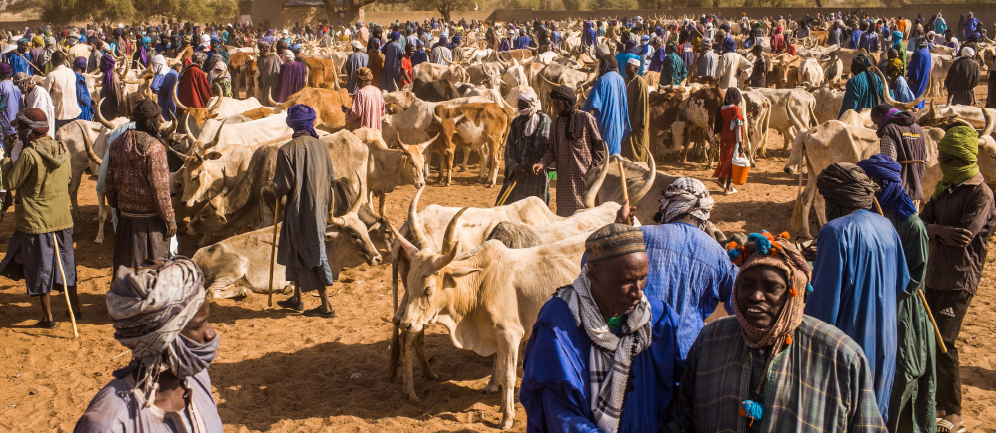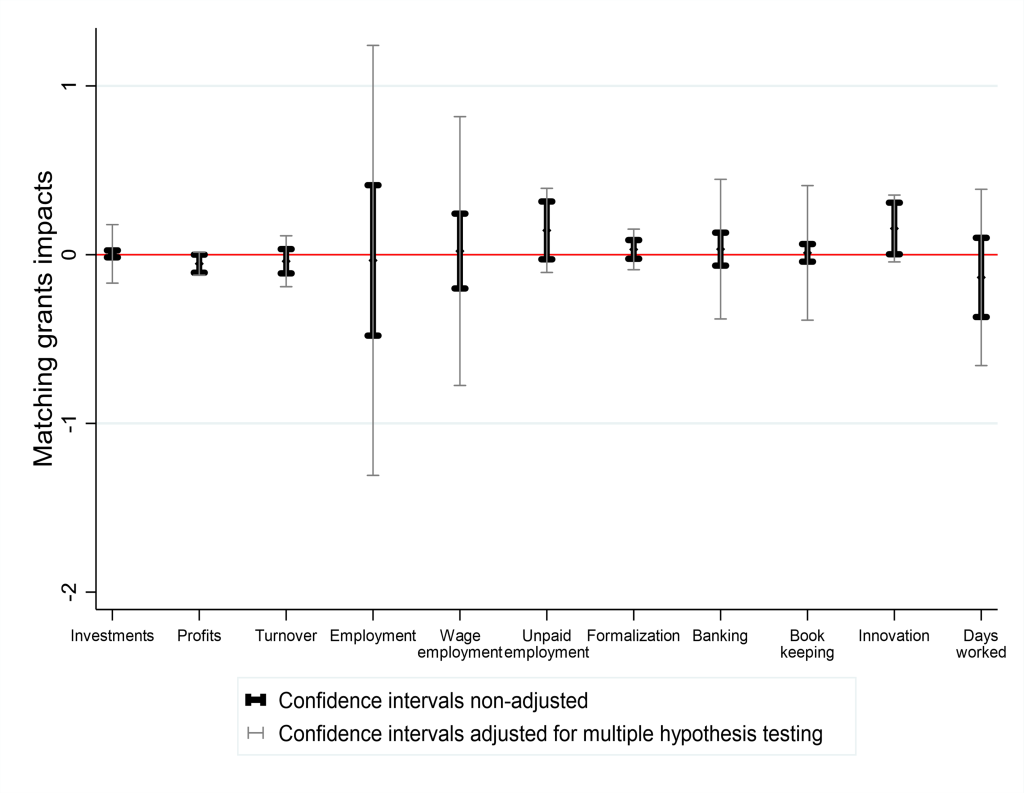 Photo: Vincent Tremeau
Photo: Vincent Tremeau
Creating new jobs is one of the biggest challenges facing low- and middle-income countries. Because employment in these countries is mostly in micro and small enterprises (MSEs), targeted interventions such as training, microcredit, cash grants, business development services (BDSs), or a combination of these are often used. But these interventions have yielded mixed results: most targeted support programs fail to generate transformative effects at a large scale due to poor targeting, too little flexibility, and the limited size of the support. This may be surprising given that MSEs in these countries exhibit high marginal returns to investment. By receiving support to adopt more sophisticated technologies and organizational structures, these firms should be able to grow. But this support also requires entrepreneurial skills, risk-taking behavior, and determination. Empirically, there is still little evidence as to which type of business support interventions for what firms could achieve such transformative effects leading to firm growth and job creation.
Assessing the impacts of addressing financial and technical constraints through supplying large, flexible cash grants vs. matching grants earmarked for BDSs
Our recent study assesses the short-term impacts of two innovative interventions to enhance private sector development and to create jobs in a resource-poor and rural setting in Burkina Faso—the Bagré growth pole area located in the Centre-Est region. The interventions relied on rigorous targeting based on a business plan competition and offered sizeable grants and complementary training in business practices. We partnered with the Maison de l’Entreprise du Burkina Faso (MEBF) to implement the interventions.
The interventions consisted of two types of grants:
- Cash grants that could be used for any business purpose, including the acquisition of machines, tools, livestock, construction, land, training, inventories, and working capital, and did not require an own contribution.
- Matching grants that were earmarked for BDSs (training, technical support, participation in commercial fairs) and required an own contribution of 20 percent of the service costs.
Depending on their investment needs, all firms were eligible for up to US$8,000, which they could withdraw from their bank account in two or more transactions. Both grants were delivered through third party local contractors applying procurement rules that were much stricter for matching grants than for cash grants. This procedure avoided giving direct liquidity to the recipients so as to prevent misuse outside and beyond the agreed business plan. Grant recipients received individual assistance from MEBF to ensure compliance with the procurement requirements.
Careful targeting with a focus on aspiring MSEs in agribusiness
We targeted 1,200 entrepreneurs selected from out of 2,279 applicants based on expert judgments of their business plans and face-to-face pitches. The business plans contained detailed firm records and needs for investments in physical capital, inventory, and BDSs. Based on pre-defined criteria, firms were shortlisted principally for their potential to grow and create jobs. These firms were also required to enroll in a standard simplified business training. Next, a public lottery randomly allocated the firms into two treatment arms (cash grants or matching grants) and a control group. Baseline quantitative and qualitative surveys were conducted before the public lotteries, and a first follow-up survey was conducted in November/December 2020, 10 months after the firms were authorized to start using their grants.
The baseline results showed that a large majority of firms were already in business (87 percent). Most of them conducted agri-business activities such as livestock fattening and poultry farming (53 percent), the transformation of agricultural products (16 percent), and the transformation of non-timber forest products. Forty-one percent were female entrepreneurs, and 45 percent of the owners had six to 13 years of formal education. On average, the firms had 2.6 employees.
Short-term impacts of cash grants and business development services during multiple crises
Initially, the project aimed at enhancing business performance and job creation, but the international and national context forced us to shift our attention also to the firm’s resilience and survival. As in most countries, the COVID-19 pandemic also disrupted domestic and international trade in Burkina Faso. Moreover, the country faced an increasing political instability —also strongly affecting the business environment . According to the Fragile States Index, Burkina Faso was classified as the fourth ‘most worsened’ country in 2020. Acccording to the World Bank, GDP per capita growth shrank from 2.8 percent in 2019 to almost -1 percent in 2020. In this difficult environment, it seemed unlikely that providing cash grants would allow firms to expand. But given their flexibility, cash grants may have at least allowed firms to better cope with the multiple shocks compared to the control group.
Although the assessment of the short-term impacts revealed positive impacts on investment for beneficiaries of cash grants (+16%), we did not find any impacts on profits and job creation, nor for beneficiaries of BDSs. These findings imply that, on average, the profits and employment recorded by grant beneficiaries are statistically indifferent when compared with the profits and employment recorded by their comparators in the control group.
But we did find robust improvements in the ability to innovate for both treatment arms: firms that received either cash grants or matching grants were innovating more with an impact of around 0.18 and 0.15 units of standard deviation, respectively. Relative to the control firms, beneficiaries of cash grants were 22 percentage points more likely to own a bank account, and engage in better business practices, such as formalization (6–7 percentage points more) and bookkeeping (13 percentage points more). The figures below summarize the impacts and their 95 percent confidence intervals.
Impacts of cash grants and matching grants
(a) For recipients of cash grants
(b) For recipients of matching grants

Source: Grimm M., S. Soubeiga and M. Weber (2021), Short-Term Impacts of Targeted Cash Grants and Business Development Services: Experimental Evidence from Entrepreneurs in Burkina Faso, World Bank Policy Research Working Paper No. 9877, World Bank, Washington D.C.
Cash grants cushioned the adverse effects of the COVID-19 pandemic
To see whether the support also increased the firm’s resilience during COVID-19, we ran regressions to compare self-reported business trends over the past six months across the three groups. Our results suggest that at least beneficiaries of cash grants were less likely to report a decline in production, investment, and performance due to the COVID-19 pandemic .
A complete analysis, based on a second survey done in 2021, that focusses on medium-term effects, including a cost-effectiveness analysis will soon follow.





Join the Conversation